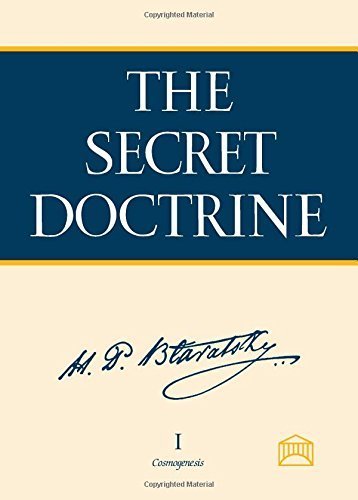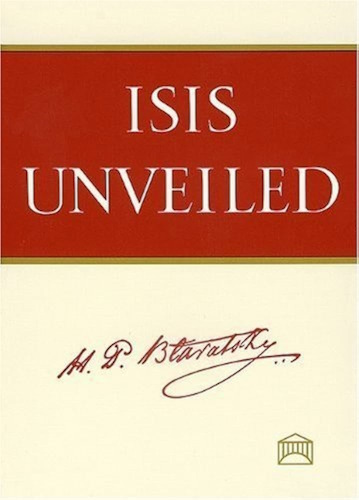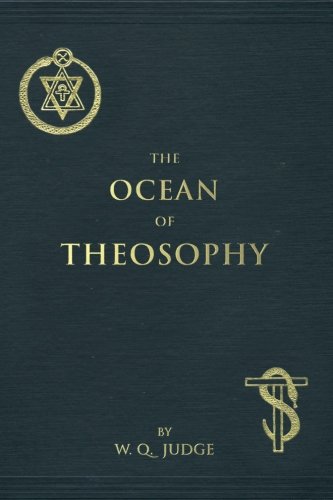














![]()
THE SECRET DOCTRINE TABLE OF CONTENTS
![]()
470
§ XV.
ON KWAN-SHI-YIN AND KWAN-YIN.
Like Avalokiteshwara, Kwan-shi-yin has passed through several transformations, but it is an error to say of him that he is a modern invention of the Northern Buddhists, for under another appellation he has been known from the earliest times. The Secret Doctrine teaches that "He who is the first to appear at Renovation will be the last to come before Re-absorption (pralaya)." Thus the logoi of all nations, from the Vedic Visvakarma of the Mysteries down to the Saviour of the present civilised nations, are the "Word" who was "in the beginning" (or the reawakening of the energising powers of Nature) with the One Absolute. Born of Fire and Water, before these became distinct elements, IT was the "Maker" (fashioner or modeller) of all things; "without him was not anything made that was made"; "in whom was life, and the life was the light of men"; and who finally may be called, as he ever has been, the Alpha and the Omega of manifested Nature. "The great Dragon of Wisdom is born of Fire and Water, and into Fire and Water will all be re-absorbed with him" (Fa-Hwa-King). As this Bodhisatva is said "to assume any form he pleases" from the beginning of a Manvantara to its end, though his special birthday (memorial day) is celebrated according to the Kin-kwang-ming-King ("Luminous Sutra of Golden Light") in the second month on the nineteenth day, and that of "Maitreya Buddha" in the first month on the first day, yet the two are one. He will appear as Maitreya Buddha, the last of the Avatars and Buddhas, in the seventh Race. This belief and expectation are universal throughout the East. Only it is not in the Kali yug, our present terrifically materialistic age of Darkness, the "Black Age," that a new Saviour of Humanity can ever appear. The Kali yug is
471 DISEASED IMAGINATION.
"l'Age d'Or" (!) only in the mystic writings of some French pseudo-Occultists. (See "La Mission des Juifs.")
Hence the ritual in the exoteric worship of this deity was founded on magic. The Mantras are all taken from special books kept secret by the priests, and each is said to work a magical effect; as the reciter or reader produces, by simply chanting them, a secret causation which results in immediate effects. Kwan-Shi-Yin is Avalokiteshwara, and both are forms of the seventh Universal Principle; while in its highest metaphysical character this deity is the synthetic aggregation of all the planetary Spirits, Dhyani Chohans. He is the "Self-manifested;" in short, the "Son of the Father." Crowned with seven dragons, above his statue there appears the inscription Pu-Tsi-K'iun-ling, "the universal Saviour of all living beings."
Of course the name given in the archaic volume of the Stanzas is quite different, but Kwan-Yin is a perfect equivalent. In a temple of Pu'to, the sacred island of the Buddhists in China, Kwan-Shi-Yin is represented floating on a black aquatic bird (Kala-Hansa), and pouring on the heads of mortals the elixir of life, which, as it flows, is transformed into one of the chief Dhyani-Buddhas — the Regent of a star called the "Star of Salvation." In his third transformation Kwan-Yin is the informing spirit or genius of Water. In China the Dalai-Lama is believed to be an incarnation of Kwan-Shi-Yin, who in his third terrestrial appearance was a Bodhisattva, while the Teshu Lama is an incarnation of Amitabha Buddha, or Gautama.
It may be remarked en passant that a writer must indeed have a diseased imagination to discover phallic worship everywhere, as do the authors of "China Revealed" (McClatchey) and "Phallicism." The first discovers "the old phallic gods, represented under two evident symbols — the Khan or Yang, which is the membrum virile, and the Kwan or Yin, the pudendum muliebre." (See "Phallicism," p. 273.) Such a rendering seems the more strange as Kwan-Shi-Yin (Avalokiteswara) and Kwan-Yin, besides being now the patron deities of the Buddhist ascetics, the Yogis of Thibet, are the gods of chastity, and are, in their esoteric meaning, not even that which is implied in the rendering of Mr. Rhys Davids' "Buddhism," (p. 202): "The name Avalokiteshwara . . . means 'the Lord who looks down from on high.' " Nor is Kwan-Shi-Yin "the Spirit of the Buddhas present in the Church," but, literally interpreted, it means "the Lord that is seen," and in one sense, "the divine SELF perceived by Self" (the human) — the Atman or seventh principle merged in the Universal, perceived by, or the object of perception to, Buddhi, the sixth principle or divine Soul in man. In a still higher sense, Avalokiteshwara = Kwan-Shi-Yin, referred to as the seventh Universal principle, is the Logos
472 THE SECRET DOCTRINE.
perceived by the Universal Buddhi — or Soul, as the synthetic aggregate of the Dhyani-Buddhas: and is not the "Spirit of Buddha present in the Church," but the omnipresent universal Spirit manifested in the temple of Kosmos or Nature. This Orientalistic etymology of Kwan and Yin is on a par with that of "Yogini," which, we are told by Mr. Hargrave Jennings, "is a Sanskrit word, in the dialects pronounced Yogi or Zogee (!), and is equivalent to Sena, and exactly the same as Duti or Duti-Ca' — i.e., a sacred prostitute of the temple, worshipped as Yoni or Sakti" (p. 60). "The books of morality," in India, "direct a faithful wife to shun the society of Yogini or females who have been adored as Sakti . . . amongst the votaries of a most licentious description." Nothing should surprise us after this. And it is, therefore, with hardly a smile that we find another preposterous absurdity quoted about "Budh," as being a name "which signifies not only the sun as the source of generation but also the male organ (Round Towers of Ireland; quoted by Mr. Hargrave Jennings in "Phallicism," p. 264). Max Muller, in his "False Analogies," says that "the most celebrated Chinese scholar of his time, Abel Remusat," maintains "that the three syllables I Hi Wei (in the fourteenth chapter of the Tao-te-king) were meant for Je-ho-vah (Science of Religion, p. 332); and again, Father Amyot, who "feels certain that the three persons of the Trinity could be recognised" in the same work. And if Abel Remusat, why not Hargrave Jennings? Every scholar will recognise the absurdity of ever seeing in Budh, "the enlightened" and "the awakened," a "phallic symbol."
Kwan-shi-yin, then, is "the Son identical with his Father" mystically, or the Logos — the word. He is called the "Dragon of Wisdom" in Stanza III., as all the Logoi of all the ancient religious systems are connected with, and symbolised by, serpents. In old Egypt, the God Nahbkoon, "he who unites the doubles," (astral light re-uniting by its dual physiological and spiritual potency the divine human to its purely divine Monad, the prototype "in heaven" or Nature) was represented as a serpent on human legs, either with or without arms. It was the emblem of the resurrection of Nature, as also of Christ with the Ophites, and of Jehovah as the brazen serpent healing those who looked at him; the serpent being an emblem of Christ with the Templars also, (see the Templar degree in Masonry). The symbol of Knouph (Khoum also), or the soul of the world, says Champollion (Pantheon, text 3), "is represented among other forms under that of a huge serpent on human legs; this reptile, being the emblem of the good genius and the veritable Agathodaemon, is sometimes bearded." The sacred animal is thus identical with the serpent of the Ophites, and is figured on a great number of engraved stones, called Gnostic or Basilidean gems. This serpent appears with various heads (human and animal), but its gems
473 SNOBS, OR DRAGONS?
are always found inscribed with the name [[CHNOUBIS]] (Chnoubis). This symbol is identical with one which, according to Jamblichus and Champollion, was called "the first of the celestial gods"; the god Hermes, or Mercury with the Greeks, to which god Hermes Trismegistos attributes the invention of, and the first initiation of men into, magic; and Mercury is Budh, Wisdom, Enlightenment, or "Re-awakening" into the divine Science.
To close, Kwan-Shi-Yin and Kwan-Yin are the two aspects (male and female) of the same principle in Kosmos, Nature and Man, of divine wisdom and intelligence. They are the "Christos-Sophia" of the mystic Gnostics — the Logos and its Sakti. In their longing for the expression of some mysteries never to be wholly comprehended by the profane, the Ancients, knowing that nothing could be preserved in human memory without some outward symbol, have chosen the (to us) often ridiculous images of the Kwan-Yins to remind man of his origin and inner nature. To the impartial, however, the Madonnas in crinolines and the Christs in white kid gloves must appear far more absurd than the Kwan-Shi-Yin and Kwan-Yin in their dragon garb. The subjective can hardly be expressed by the objective. Therefore, since the symbolic formula attempts to characterise that which is above scientific reasoning, and as often far beyond our intellects, it must needs go beyond that intellect in some shape or other, or else it will fade out from human remembrance.
——————————————
THE SECRET DOCTRINE TABLE OF CONTENTS














-
Urantia Book, 44:0.11 - The Celestial Artisans
Never in your long ascendancy will you lose the power to recognize your associates of former existences. Always, as you ascend inward in the scale of life, will you retain the ability to recognize and fraternize with the fellow beings of your previous and lower levels of experience. Each new translation or resurrection will add one more group of spirit beings to your vision range without in the least depriving you of the ability to recognize your friends and fellows of former estates.
-
Princess Bride 1987 Wallace Shawn (Vizzini) and Mandy Patinkin (Inigo Montoya)
Vizzini: HE DIDN'T FALL? INCONCEIVABLE.
Inigo Montoya: You keep using that word. I do not think it means what you think it means. -
Urantia Book, 117:4.14 - The Finite God
And here is mystery: The more closely man approaches God through love, the greater the reality -- actuality -- of that man. The more man withdraws from God, the more nearly he approaches nonreality -- cessation of existence. When man consecrates his will to the doing of the Father's will, when man gives God all that he has, then does God make that man more than he is.
-
Urantia Book, 167:7.4 - The Talk About Angels
"And do you not remember that I said to you once before that, if you had your spiritual eyes anointed, you would then see the heavens opened and behold the angels of God ascending and descending? It is by the ministry of the angels that one world may be kept in touch with other worlds, for have I not repeatedly told you that I have other sheep not of this fold?"
-
Urantia Book, Foreword - 0:12.12 - The Trinities
But we know that there dwells within the human mind a fragment of God, and that there sojourns with the human soul the Spirit of Truth; and we further know that these spirit forces conspire to enable material man to grasp the reality of spiritual values and to comprehend the philosophy of universe meanings. But even more certainly we know that these spirits of the Divine Presence are able to assist man in the spiritual appropriation of all truth contributory to the enhancement of the ever-progressing reality of personal religious experience—God-consciousness.
-
Urantia Book, 1:4.3 - The Mystery Of God
When you are through down here, when your course has been run in temporary form on earth, when your trial trip in the flesh is finished, when the dust that composes the mortal tabernacle "returns to the earth whence it came"; then, it is revealed, the indwelling "Spirit shall return to God who gave it." There sojourns within each moral being of this planet a fragment of God, a part and parcel of divinity. It is not yet yours by right of possession, but it is designedly intended to be one with you if you survive the mortal existence.
-
Urantia Book, 1:4.1 - The Mystery Of God
And the greatest of all the unfathomable mysteries of God is the phenomenon of the divine indwelling of mortal minds. The manner in which the Universal Father sojourns with the creatures of time is the most profound of all universe mysteries; the divine presence in the mind of man is the mystery of mysteries.
-
Urantia Book, 1:4.6 - The Mystery Of God
To every spirit being and to every mortal creature in every sphere and on every world of the universe of universes, the Universal Father reveals all of his gracious and divine self that can be discerned or comprehended by such spirit beings and by such mortal creatures. God is no respecter of persons, either spiritual or material. The divine presence which any child of the universe enjoys at any given moment is limited only by the capacity of such a creature to receive and to discern the spirit actualities of the supermaterial world.
-
Urantia Book, 11:0.1 - The Eternal Isle Of Paradise
Paradise is the eternal center of the universe of universes and the abiding place of the Universal Father, the Eternal Son, the Infinite Spirit, and their divine co-ordinates and associates. This central Isle is the most gigantic organized body of cosmic reality in all the master universe. Paradise is a material sphere as well as a spiritual abode. All of the intelligent creation of the Universal Father is domiciled on material abodes; hence must the absolute controlling center also be material, literal. And again it should be reiterated that spirit things and spiritual beings are real.
-
Urantia Book, 50:6.4 - Planetary Culture
Culture presupposes quality of mind; culture cannot be enhanced unless mind is elevated. Superior intellect will seek a noble culture and find some way to attain such a goal. Inferior minds will spurn the highest culture even when presented to them ready-made.
-
Urantia Book, 54:1.6 - True And False Liberty
True liberty is the associate of genuine self-respect; false liberty is the consort of self-admiration. True liberty is the fruit of self-control; false liberty, the assumption of self-assertion. Self-control leads to altruistic service; self-admiration tends towards the exploitation of others for the selfish aggrandizement of such a mistaken individual as is willing to sacrifice righteous attainment for the sake of possessing unjust power over his fellow beings.
-
Urantia Book, 54:1.9 - True And False Liberty
How dare the self-willed creature encroach upon the rights of his fellows in the name of personal liberty when the Supreme Rulers of the universe stand back in merciful respect for these prerogatives of will and potentials of personality! No being, in the exercise of his supposed personal liberty, has a right to deprive any other being of those privileges of existence conferred by the Creators and duly respected by all their loyal associates, subordinates, and subjects.
-
Urantia Book, 54:1.8 - True And False Liberty
There is no error greater than that species of self-deception which leads intelligent beings to crave the exercise of power over other beings for the purpose of depriving these persons of their natural liberties. The golden rule of human fairness cries out against all such fraud, unfairness, selfishness, and unrighteousness.




